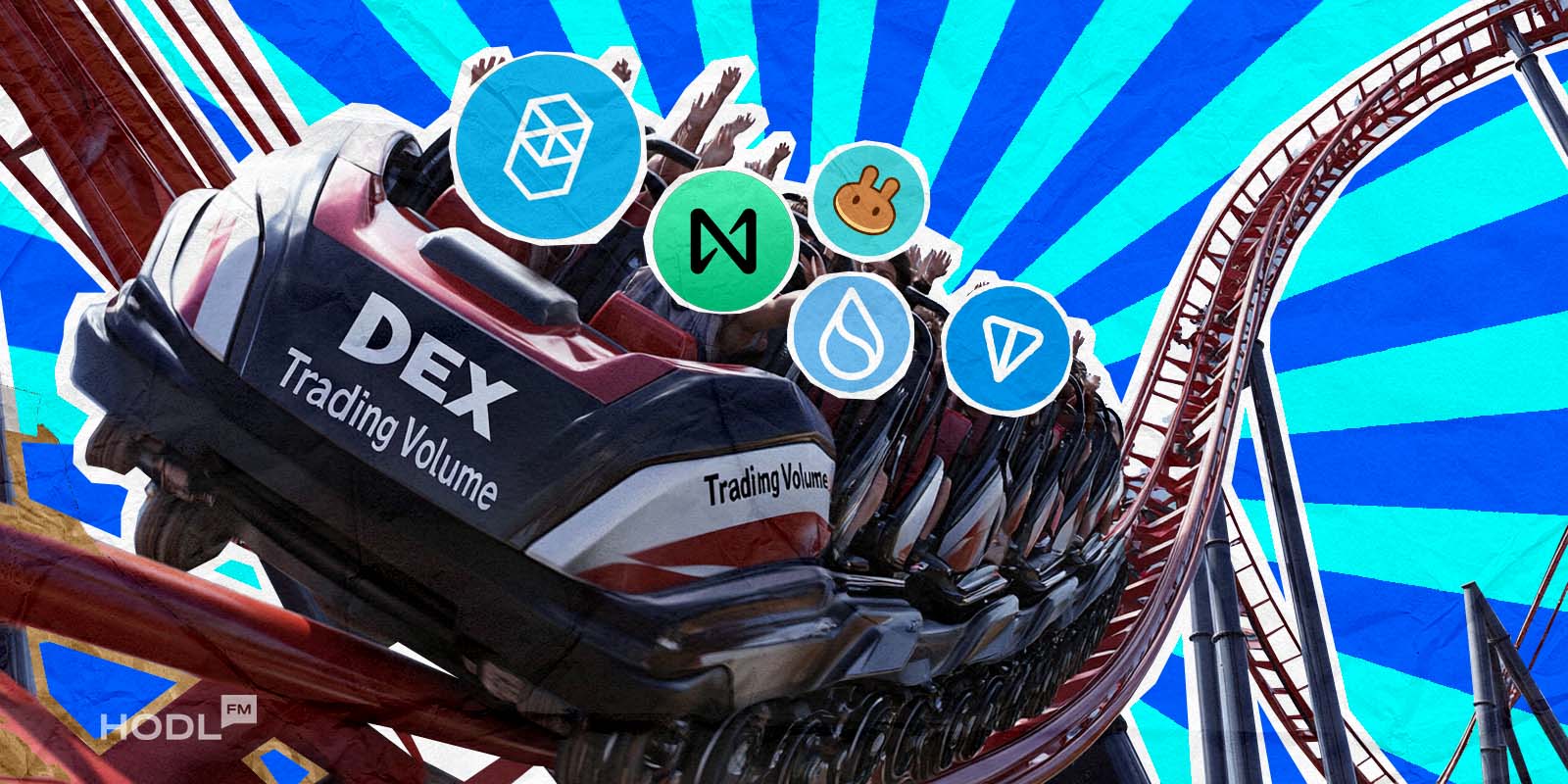Tough times create strong platforms. Evidently, we can say it was the Securities and Exchange Commission (SEC)’s unreasonable regulatory scrutiny on crypto exchanges that gave birth to Decentralized exchanges (DEXs). Now, DEXs are reshaping how we trade crypto with priority on user autonomy and privacy.
This article aims to explore the current DEX regulatory landscape, trading volumes, and notable developments from popular platforms such as Uniswap, PancakeSwap, and dYdX.
Related: DeFi Exchanges are Slowly Taking Over Market Share from Centralized Crypto Counterparts
Regulatory Landscape
The regulatory framework surrounding DEXs are becoming increasingly complex as governments worldwide seek to establish guidelines for cryptocurrency trading. Unlike centralized exchanges, which are subject to strict regulations, DEXs operate without a central authority, complicating oversight.
Regulatory bodies are focusing on issues such as anti-money laundering (AML) and know your customer (KYC) requirements, which could impose significant changes on how DEXs function.
In the United States, the Securities and Exchange Commission (SEC) has intensified scrutiny on cryptocurrency platforms, with a new interest in DEXs. This heightened regulatory attention has prompted DEX operators to consider compliance measures that could align them with traditional financial regulations.
Looking back to the SEC regulation and lawsuit frenzy last year, you'll agree that it was all these for a regulated crypto environment that made DEXs popular among investors in the first place.
A popular tweet by a crypto influencer last December captured this “migration to DEXs” trend.
Due to SEC and IRS regulations in the US, during this blockchain bull cycle, I will be abstaining from CEX.
— SiFu Jasper🔺9000 (@SiFuJasper) December 4, 2023
No L1s for me that I cannot purchase directly from my wallet. Everything else will be traded on DEXs.#AbstainFromCEX
Following SEC actions, The European Union has also taken steps to regulate the cryptocurrency market with the introduction of the Markets in Crypto-Assets (MiCA) regulation.
The news, though expected, rocked the crypto industry.
The EU’s MiCA Regulation:
— blckblochi (@blckblochii) September 6, 2024
The European Union is pushing forward with the Markets in Crypto-Assets (MiCA) regulation, which aims to create a comprehensive framework for crypto assets across EU member states. MiCA will standardize rules regarding crypto assets, their issuance, and…
Asian countries like Singapore and Japan have also been proactive in regulating the cryptocurrency industry. The Monetary Authority of Singapore (MAS) has introduced the Payment Services Act, which requires crypto-asset service providers to obtain a license and adhere to AML/CFT (Combating the Financing of Terrorism) requirements. Japan, on the other hand, has amended its Financial Instruments and Exchange Act to include crypto-assets, subjecting DEXs to stricter regulations.
Current DEX Trading Volumes
In the past year, DEX trading volumes have soared by over 150%, surpassing $1.5 trillion. This growth reflects a significant shift in user preferences towards decentralized trading, driven by the advantages of enhanced security, transparency, and lower fees compared to centralized exchanges.
Notably, Uniswap has consistently led in trading volume, leveraging automated market maker (AMM) technology to facilitate trades directly between users. As of April 2024, Uniswap's trading volume has exceeded $1.5 trillion, reflecting its widespread adoption and the growing demand for decentralized trading solutions.
On the other hand, PancakeSwap has gained traction due to its lower transaction fees and user-friendly interface, attracting a diverse user base. The platform's trading volume has reached $597 million, further solidifying its position in the DEX ecosystem.
Another well-known DEX platform, dYdX has also made its mark in the decentralized derivatives market. With a total trading volume of $1.13 billion, dYdX is positioning itself as a leader in this segment of the DEX ecosystem.
Notable Developments in DEX Platforms
Uniswap remains a pivotal player in the DEX ecosystem, known for its innovative AMM model. The platform recently launched Uniswap V3, which introduced concentrated liquidity, allowing liquidity providers to allocate capital more efficiently. This upgrade has resulted in improved trading efficiency and reduced slippage for users.
BREAKING: 🇺🇸
— Radar🚨 (@RadarHits) September 4, 2024
Uniswap hit with order by CFTC for Illegal Trading in Digital Asset Derivatives. pic.twitter.com/t2aLmM49L3
Not far away from the spotlight is PancakeSwap which has also made headlines recently with its rapid growth and expansion of services. The platform recently announced the launch of new features, including yield farming and staking options, which enhance user engagement and incentivize liquidity provision.
The emergence of cross-chain DEXs, such as THORChain and Multichain, has also gained attention in the DEX ecosystem. These platforms enable users to swap assets across different blockchain networks, providing greater flexibility and accessibility.

Disclaimer: All materials on this site are for informational purposes only. None of the material should be interpreted as investment advice. Please note that despite the nature of much of the material created and hosted on this website, HODL FM is not a financial reference resource and the opinions of authors and other contributors are their own and should not be taken as financial advice. If you require advice of this sort, HODL FM strongly recommends contacting a qualified industry professional.





